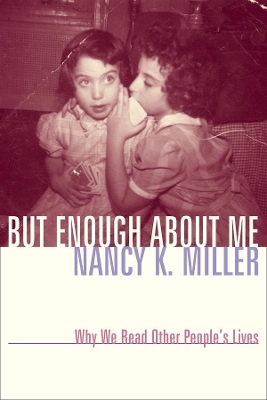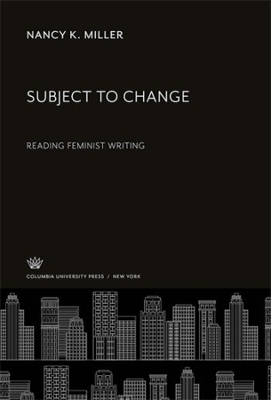Gender and Culture
3 total works
My Brilliant Friends is a group biography of three women’s friendships forged in second-wave feminism. Poignant and politically charged, the book is a captivating personal account of the complexities of women’s bonds.
Nancy K. Miller describes her friendships with three well-known scholars and literary critics: Carolyn Heilbrun, Diane Middlebrook, and Naomi Schor. Their relationships were simultaneously intimate and professional, emotional and intellectual, animated by the ferment of the women’s movement. Friendships like these sustained the generation of women whose entrance into male-dominated professions is still reshaping American society. The stories of their intertwined lives and books embody feminism’s belief in the political importance of personal experience. Reflecting on aging and loss, ambition and rivalry, competition and collaboration, Miller shows why and how friendship’s ties matter in the worlds of work and love. Inspired in part by the portraits of the intensely enmeshed lives in Elena Ferrante’s Neapolitan novels, My Brilliant Friends provides a passionate and timely vision of friendship between women.
Nancy K. Miller describes her friendships with three well-known scholars and literary critics: Carolyn Heilbrun, Diane Middlebrook, and Naomi Schor. Their relationships were simultaneously intimate and professional, emotional and intellectual, animated by the ferment of the women’s movement. Friendships like these sustained the generation of women whose entrance into male-dominated professions is still reshaping American society. The stories of their intertwined lives and books embody feminism’s belief in the political importance of personal experience. Reflecting on aging and loss, ambition and rivalry, competition and collaboration, Miller shows why and how friendship’s ties matter in the worlds of work and love. Inspired in part by the portraits of the intensely enmeshed lives in Elena Ferrante’s Neapolitan novels, My Brilliant Friends provides a passionate and timely vision of friendship between women.
In her latest work of personal criticism, Nancy K. Miller tells the story of how a girl who grew up in the 1950s and got lost in the 1960s became a feminist critic in the 1970s. As in her previous books, Miller interweaves pieces of her autobiography with the memoirs of contemporaries in order to explore the unexpected ways that the stories of other people's lives give meaning to our own. The evolution she chronicles was lived by a generation of literary girls who came of age in the midst of profound social change and, buoyed by the energy of second-wave feminism, became writers, academics, and activists. Miller's recollections form one woman's installment in a collective memoir that is still unfolding, an intimate page of a group portrait in process.
-- Elaine Marks, University of Wisconsin-Madison


